This is one in a series of short stories I've been writing during my own coronavirus quarantine. You can find the complete collection of fiction written especially for this blog here. My books are available on the Amazon Kindle, for sale or for reading via Kindle Unlimited.
__________
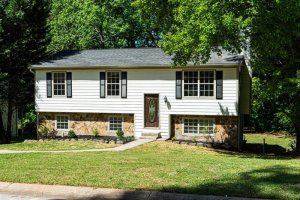
His dad, Mason Johnson, was a retired cop, his mother Ellen a retired teacher. He was given his name because he was the fifth in his line to be born in freedom. On Sundays he went, with his parents and his sister, to the Piney Woods Baptist Church, where he was taught that a proud, strong black man was capable of anything. Afterwards they would repair to a Golden Corral for fried chicken, everyone in their Sunday best.
In high school Quintavious was known as Quint. His grades earned him a Hope Scholarship. The costs of college would be minimal if he kept up his grades. His older sister Melissa graduated from Spelman and had won a nursing scholarship at North Carolina State.
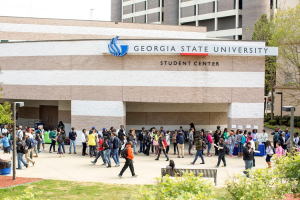
When 2020 dawned he was preparing for the last semester of his biology degree. He had taken his MCAT. He was preparing for his interviews. His advisor told him he was certain to be accepted at Morehouse Medical. It was his first choice.
When his uncle John Jameson passed away in Albany of a heart attack, Q thought nothing of it. He had visited the Jamesons a few times, usually in the summer. John was actually his great-uncle, and the paterfamilias of his mom’s family.
It was John Jameson’s idea to name him Quintavious. He was the family historian. His grandfather Jamal had died years before, so it was no surprise that his mother would go down there to see John off.
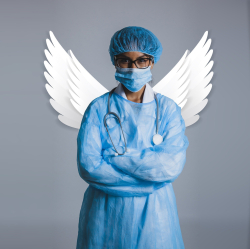
When Q got back home, Ellen’s cough was worse. A fever accompanied it, and body aches that nothing could set right. Mason was worried, and said he would drive Ellen in to see her doctor the next morning.
But morning came and, with it, an ambulance. Breathing was difficult. Ellen was placed on oxygen. This was the last time Quint saw his mother.
That evening Mason was too tired to cook. Quint bought hamburgers on his way home. Mason couldn’t eat his, He said he was worried about Ellen. She was being isolated from other patients, and the doctors wouldn’t tell him why.
The next morning they told him why. It was the coronavirus. Mason went in for the results, took a test, and when he learned of his own diagnosis drove himself in. Ellen went on a ventilator a week later, and died a week after that. Mason died a week after that.
Melissa had come home by that time. After getting her B.A. at Spelman, she did an accelerated nursing degree program at North Carolina State. Before she drove down from Raleigh, she claimed the hardship of her brother and transferred to Emory Hospital. She could drive him in. They could talk.
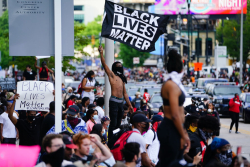
But the pressure was building. Q’s grades were dropping fast. He blew the interview. He barely scraped by that semester, his grades coming up just short of honors for his full term.
A few months later George Floyd died. Then Rayshard Brooks died. Brooks had died at the Wendy’s Q had begun stopping at on his way home, for a burger, fries and a Twisted Frosty.
Q joined the demonstrations. In the evenings so did Melissa. They watched the doors of the CNN Center broken. The Mayor urged caution, but Melissa felt no caution. Q lost track of her. The police were trying to break things up, and charged their group.
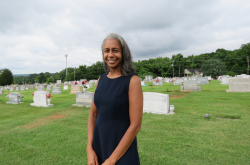
Q had Melissa’s body cremated, but buried her alongside her parents at the South-View Cemetery plot they had bought years before. It was just a few aisles up from where, a month later, John Lewis would be buried.
If Q had been white, he would have been seeing a psychiatrist in the spring, but his parents didn’t believe in it. If Q had been white, Melissa would have been remembered, even if she had been killed by other demonstrators.
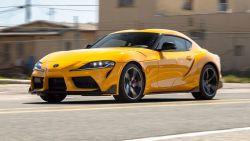
After doing his 20 with the Atlanta Police, Mason had taken up a hobby. He liked nice cars. He had a Toyota Supra, in addition to the workhorse Camry Ellen drove. The Supra didn’t look like much, but Mason could rev it up to 120 on I-675. He got caught once, but the black Georgia State Patrolman who stopped him turned out to be a neighbor and he got off with a warning.
Now Q replaced the downpipe, upgraded the turbocharger and tuned the Engine Control Unit for even more power. He smiled as he worked. His ultimate goal had been to become a surgeon.
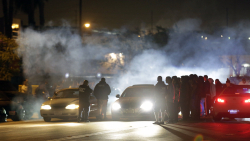
Q took the Supra. He did doughnuts on Whitehall, which is what they call Peachtree south of downtown. He placed bets with other racers and made side bets in the crowd. He won.
The action moved. He raced up Northside Drive, the finish line just past the new Stadium. Next weekend he raced up Scott Boulevard on the east side, after a white spectator on the Hill dared him to do it. He was gaining a reputation.
Now, on a hot August night, the police were cracking down and Q was getting more reckless. There was just one more course to work.
This time, Q put out the word himself, and organized the race. At 2 AM on a Wednesday night, he revved his motor on I-75 at Northside, while a driver known only as A did the same thing near Cheshire Bridge and I-85. Q heard that tens of thousands of dollars were being wagered, and there were side bets being placed on police action. He didn’t care about the money. He didn’t care about the virus anymore. It was more deadly than ever, but a driver had social distance.
Q no longer cared about the country, its issues, or his own future. He had given it all up for the action. The adrenaline rush of pushing Mason’s car as hard as it could go, It made him…forget. He didn’t need to drink or do drugs. He didn’t need to party or bed women. He was high on adrenaline, and danger. The day before he had gotten an e-mail from someone who claimed to be from Red Bull Racing, but he didn’t need money or fame, either.
What Q needed were those few shining moments when everything was now, with the white lines of the road below him, the sound of an opponent beside him, the roar of both engines in his ears/
Q and A would take off at exactly 2 AM, from opposite freeways. To throw off the cops, the spectators wouldn’t be in their cars, but scattered on top of the 17th Street, 14th Street and 10th Street bridges. The barriers the city had built to keep people from jumping off those bridges had been cut away, carefully, over the previous several days. These were now prime viewing locations.
The event would take less than 10 seconds. Other races were being held around the city, as distractions. The police were everywhere, and nowhere. To clear Q’s track small accidents had been staged, at Clairmont and W. Paces Ferry. This would keep 18 wheelers off the course.
There was a stream of music in Q’s ear, as in A’s ear, playing on a designated Web address. Q had Airpods in each ear, but if you did drive by that night, there would be nothing to notice at the side of the road, under the bridge. Just a Supra flashing its hazard lights.
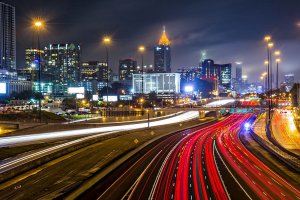
At the top of the connector Q saw the other driver for the first time. He had a tougher turn, and had slowed slightly. Q was ahead.
But A was driving a Tesla, a Model 3 he’d gotten used. The Tesla had a “ludicrous speed” option where, if he floored it, would send the acceleration well beyond what any gas-powered engine could conceive of.
Q had his foot on the floor, and his eyes on the prize. But A was passing him. A was going to beat him to 10th Street. So Q did the only thing he could conceive of. He twisted his steering wheel left, and hooked the Tesla’s rear bumper in his front one. The Tesla began spinning. Q’s plan was that it would spin out to the right and he could somehow unhook, to go forward when he spun the Supra’s steering wheel right.
The last thing Q saw, before he hit the wall at 8th Street, were the lights of the city rising before him. It was the Emerald City. It was Oz.
It was his final destination.








